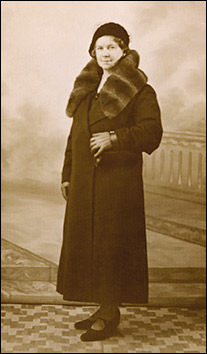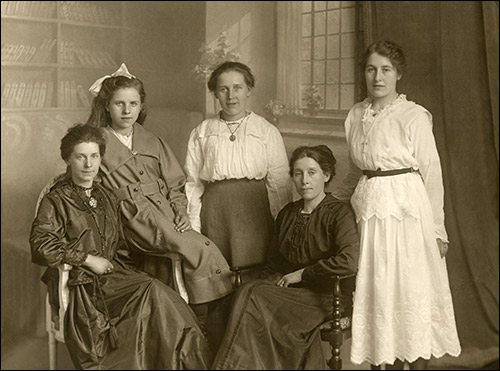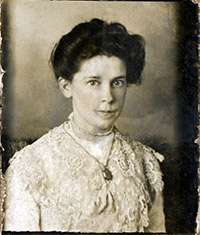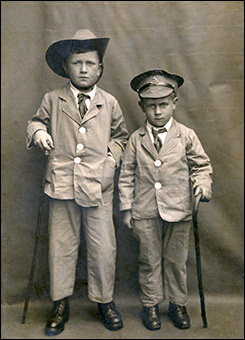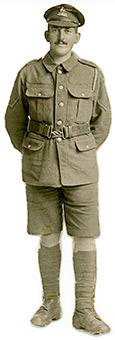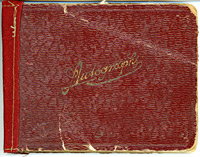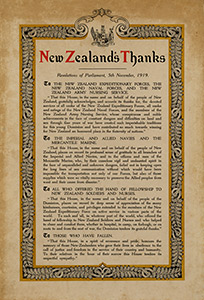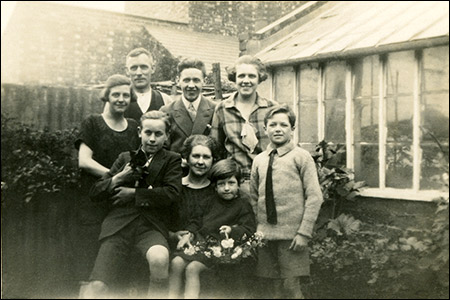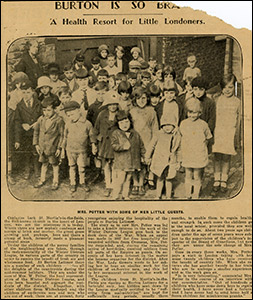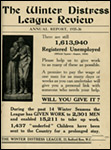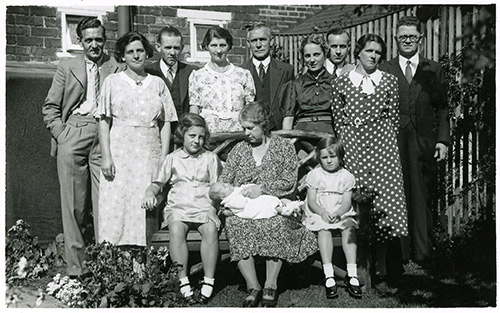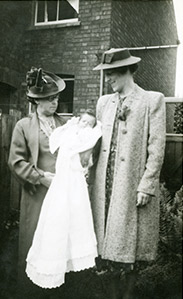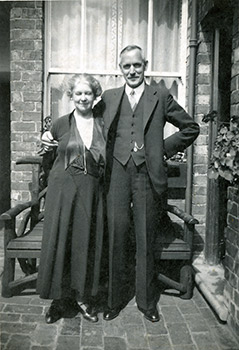| This story was researched, compiled and written by Claire Weiss and is reproduced here with her kind permission All images are copyright of Claire Weiss |
|||||||||||||
|
|||||||||||||
|
|||||||||||||
|
A tribute to Grandma Potter “The Grandma I never knew”
Compiled by Claire Weiss (nee Potter) with the help and encouragement of my Potter/Tilbury cousins Sheila, Janet, Isabelle, Kathleen, Christine, Susan and my sister Celia. Dedicated to my father, Ronald Haydn Potter |
|||||||||||||
|
In the year of 1878, when the Edison Electric Light Company first supplied electricity to households in the USA, and in London, the East London Mission changed its name to the Salvation Army and Gilbert & Sullivan premiered HMS Pinafore, my paternal grandmother Annie Eliza Tilbury was born in Landport, Hampshire, to Mary Ann Smith, of a naval family, and Thomas Tilbury, a brush-maker. She was the second born of ten, the last four of whom were born in Northamptonshire. The family moved from Hampshire to
In 1891, Thomas (born 1876) the eldest son, was recorded as a shoe finisher, while Annie Eliza and her younger brothers and sisters were still scholars. By the time of the 1901 Census, Thomas and Annie were each married and had left the parental home; their younger brother William (born c.1882) was a shoe finisher, sister Caroline (Carrie, born c.1884) was a fitter in the boot trade, Eliza (Liza, born c.1886) was a boot closer, and the younger ones Bertie (born c.1883), Louisa (Louie, born 1893) and Frank (born c.1900) were all listed as workers in the boot trade. Between the 1891 and 1901 Censuses, when Annie was in her teens, a baby boy named John, who had been born to Mary Ann in 1890, had sadly died. At the 1901 Census, Thomas had settled at
|
|||||||||||||
|
Marriage, first children, Stanwick At the age of 20, Annie Eliza had married William George Potter (born 1876 in Kettering, my paternal grandfather) in 1898 and in the 1901 Census they were recorded as living at
The Loasbys were possibly the better-off family - William George Potter was the fifth child born into the Loasby household at 11 Goadby's Yard, Kettering (1875), where his parents Joseph George Potter and Fanny Martha Potter (nee Loasby) were listed as boarder and boarder's wife of William Loasby, a shoemaker widower. William George was only seven when his father Joseph died, and within a year (in 1884) his mother Fanny Martha remarried to William Crick and went on to have further children. In 1899 William and Annie's first child William Thomas Potter (Willie as he has always been known) was born, but died at
Between the years of 1907 when Wilf was born, and the birth of Ronald Haydn (so named after the composer of the 'Surprise' symphony) in 1913, the family moved from Stanwick to
In 1917, tragedy struck the Tilbury family again. William George, Annie's younger brother, who was already in his thirties and had two children, was killed in action towards the end of the First World War. He had joined the Huntingdonshire Cyclist Battalion, which had been formed as part of east coast defences, subsumed into the Royal Warwickshire Regiment and then despatched to the front. He was killed by a sniper's bullet, on 26th October 1917. He is remembered at Ypres, in
Annie's voluntary work Annie became involved in voluntary work to provide accommodation for off-duty and wounded servicemen from the Empire countries. According to an account by Ron, her youngest son, which was reproduced in "Old
"Mrs Potter felt that they could be found leave billets in
The background is further embellished in a report of an interview with Annie Eliza in a local newspaper headed "
There are many touching remarks and contributions in the autograph book, from the soldiers of Empire and Allied countries including
"Continual kindness on your part, Has made a friend that's true. And now I only have to wish, The best of all good things for you". His address was 'Kirwee',
Another soldier wrote: "There's a home up in the
To a lone Australian soldier, From far across the sea. I know I shall always be welcome, And get a hearty grip of the hand If ever again, I am lucky to come, Back to
With All Best Wishes to Mrs Potter from No. 1536, Private G. B. Anderson, 14th Battalion, Australian Infantry Forces, 12th August 1918.
Many of the young men called Annie Eliza 'mother' - she was approaching forty when she embarked on this work.
|
|||||||||||||
|
The recognition for her voluntary work
She also received from the New Zealand Government an illuminated copy of four resolutions of the New Zealand Parliament, dated 5th November 1919, thanking, amongst others, "all those who offered the hand of fellowship to New Zealand soldiers and nurses" and placing on record "Its deep sense of appreciation of the many kindnesses, courtesies, and privileges extended to the members of the New Zealand Expeditionary Force on active service." Accompanying this illuminated certificate is this personal letter to her, Mrs Potter, Alexandra Street, Burton Latimer, England, from the New Zealand Prime Minister, dated 24th May 1920, saying "From my own personal knowledge I can say that the kindness and hospitality shown to our men while abroad was very warmly appreciated not only by the men themselves but by their relatives at home." |
|||||||||||||
|
Annie's work for children This kind of activity became a lifetime's commitment to Annie Eliza. After the war, she continued to undertake voluntary work, this time with children from destitute families of London and give them recuperative holidays - in her own home or boarded out. Once every three weeks she would make the train journey, taking twenty or thirty children back to
"
The respect with which she was held at the Winter Distress League was matched by the family's reputation in
The records of the Winter Distress League
These are the covers for the 1922-24 and 1935-36 reports of the Winter Distress League. The organisation set up work schemes for unemployed people and provided them with work clothing. It gave financial hardship grants and boarded out of under-nourished children. On the next page is the detail of Annie's contribution in those first years. The above is the earliest report available recording Annie's work — 1922. Ten years later, the Winter Distress League Annual Report for 1932-33 states that she boarded 137 children for an average stay of twelve weeks. The report of 1934-35 states: "Mrs Potter and those who make room for little guests, command our respect as well as our gratitude. After all, it is no small thing for a cottage woman to accept the care and responsibility of a weakly child in addition to her own home duties, and how much more they give than could ever be paid for in terms of money is evidenced by the parents' gratitude and approval. 161 children have been away for periods long enough really to build them up physically, often three or four months being necessary, and - Oh! The joy most of them get out of their holiday, and the strange parcels that return home with them, varying from eggs and spinach to live poultry and fuchsia plants. A brown paper parcel has been known to quack loudly on top of a bus!" Sadder times Annie Eliza suffered ill-health, although the dates of this are unknown. One speculative idea is that the period between 1926 and 1932, during which there are no reports available of the Winter Distress League work, may have been accounted for by illness. This would tie in with two letters, written in an unsophisticated script by Ron to his mother during her absences from home. No year is stated on the letters, but the key information, apart from the fact that he missed her very much, was that she was somewhere in a hospital in London for an operation, followed by a period of convalescence in Brighton. Ron was being looked after by his elder sister
Thomas Tilbury dies Annie's father, Thomas Tilbury lived to the age of 82. The report in the Evening Telegraph (see next page) of his funeral, at
Annie and the family
The other grandchildren of Annie Eliza, are Christine Fennell, Kathleen Potter, Susan Potter, and myself, Claire Potter. A full life Annie Eliza Potter was a woman of great energy. She made a lasting impact on many people's lives and was highly respected in the community. With another world war taking place, in which members of her own family were once more on active service, Annie died tragically early at home in Burton of cancer in 1943. Sixty-five is an early age to depart, and William George survived another eighteen years without her. As the decades go by, I can appreciate what a contribution she made, and how indefatigable she must have been. She was, for me, the Grandma I never knew, but always wanted to. She deserves to be celebrated and remembered, and this little feature is my first attempt to do that. If any family members or others who knew her have any other information that adds to the detail here, or if there is anything to correct, please send it to me for editing into a revised version.
Claire Elizabeth Weiss (nee Potter)
Tel: + 44 (0)20 8539 2833 Email: claireweiss@hotmail.com |
|||||||||||||
